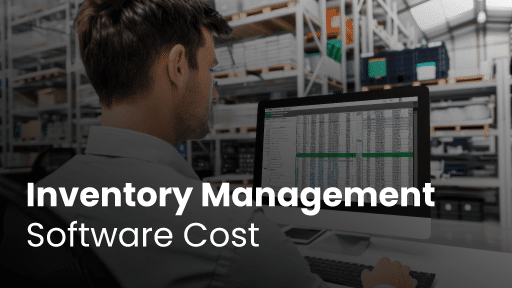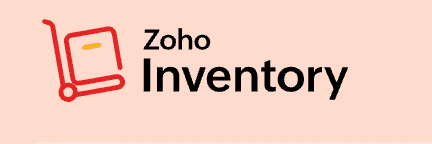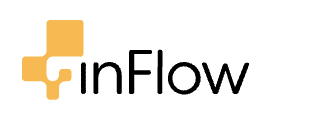Inventory management software costs vary widely depending on features, business size, and deployment type.
This guide breaks down the pricing structure of inventory management software, from budget-friendly solutions for small businesses to advanced enterprise systems.
It also explores hidden costs, factors affecting pricing, and key considerations when choosing the right software.
Understanding these costs will help you make an informed investment, whether you’re a brick-and-mortar retailer, wholesaler, or eCommerce business.
? Key Takeaways:
- Inventory management software costs vary: Pricing ranges from $50/month for basic solutions to over $1,000/month for enterprise-level systems, and features, automation, and business size influence costs.
- Key cost factors: Pricing depends on the number of users, scalability, third-party integrations, hardware requirements, and whether the system is cloud-based or on-premise.
- Hidden costs exist: Additional expenses include onboarding and training, data migration, integration with existing systems, and ongoing maintenance and support fees.
- Choosing the right software: Before selecting a solution, Businesses should assess their needs, define KPIs, evaluate features, ensure scalability, and consider integration capabilities.Beyond inventory management: Businesses may need additional software like POS systems, accounting tools, and CRM solutions, which can increase their overall operational costs.
Most Popular Inventory Management Software
Product
Best For
Price
Trial Info
Key Features
Best for:
Retail stores, high-risk businesses (liquor, vape, smoke shops).
Price:
Pricing starts at $59/mo
Processing Fees:
Unlimited free trial
Key Feature:
Automated minimum and maximum inventory levels; barcode-enabled return and exchange system
Best for:
Small to medium-sized businesses across various industries.
Price:
Paid plans start at $39/mo
Processing Fees:
14-day free trial
Key Feature:
Item kitting; automatic reordering with set reorder points and reminders
Best for:
Wholesale, distribution, manufacturing, and eCommerce businesses.
Price:
Pricing begins at $186/mo
Processing Fees:
14-day free trial
Key Feature:
Bill of Materials (BOM) and assemblies management; vast eCommerce and accounting integrations
Best for:
eCommerce and wholesale businesses.
Price:
Pricing starts at $349/mo
Processing Fees:
No free trial
Key Feature:
Automated inventory management with real-time stock updates; omni-channel eCommerce integrations
Best for:
Product sellers, including retail, wholesale, and eCommerce businesses.
Price:
Pricing starts at $349/mo
Processing Fees:
14-day free trial
Key Feature:
Warehouse management integration; smart reordering system with forecasting capabilities
Best for:
Large enterprises, multi-channel retailers, and wholesalers.
Price:
Custom pricing
Processing Fees:
No free trial
Key Feature:
Demand planning to anticipate inventory needs, lot and serial number tracking
Average Cost of Inventory Management Software
Inventory management software costs vary widely based on features, business size, and deployment type. Basic solutions start at around $50 to $150 per month, ideal for small businesses with simple tracking needs.
Mid-tier software with automation and reporting costs between $150 and $500 per month, catering to growing retailers and wholesalers. Advanced enterprise solutions with AI-driven forecasting, multi-location tracking, and integrations can exceed $1,000 monthly.
Some providers charge per user or location, while others offer flat rates. Additional costs may include setup fees, hardware, and premium support. Free options exist but often come with feature limitations.
Factors That Affect the Cost of Inventory Management Software
Choosing the right inventory management software depends on various factors that influence pricing. Retailers, wholesalers, and industry-specific businesses have different needs, from liquor stores requiring compliance tracking to hardware stores managing thousands of SKUs. Pricing varies based on automation, integrations, scalability, and the necessary level of analytics.
Number of Users and Scalability
Pricing is influenced by the number of users and the system’s scalability requirements. Many providers charge per user, with costs increasing as more users are added. Additionally, systems designed to scale with business growth may have a higher price point due to the need for enhanced capabilities and infrastructure.
Integration with Third-Party Systems
The need to integrate with POS systems, accounting software (e.g., QuickBooks), eCommerce platforms, and supply chain management tools affects costs. A hardware store relying on supplier-direct ordering may need advanced B2B integrations, which will increase the software price.
A wholesaler needing EDI (Electronic Data Interchange) for automated vendor communications will pay more for compatibility. Basic software with limited integrations is cheaper, while customizable systems with open API access cost significantly more.
Support and Maintenance
Ongoing support and maintenance are essential for the smooth operation of inventory management software. Some providers include support in their pricing, while others offer it as an add-on service. Maintenance ensures the system remains up-to-date with the latest features and security patches, contributing to the total cost of ownership.
Hardware & Barcode Scanning Requirements
Some businesses require additional hardware, which affects costs. For example, a convenience store scanning thousands of items daily might need to invest in barcode scanners and RFID technology, increasing software and hardware expenses. A clothing store managing a warehouse may require mobile inventory scanning devices, adding to upfront costs.
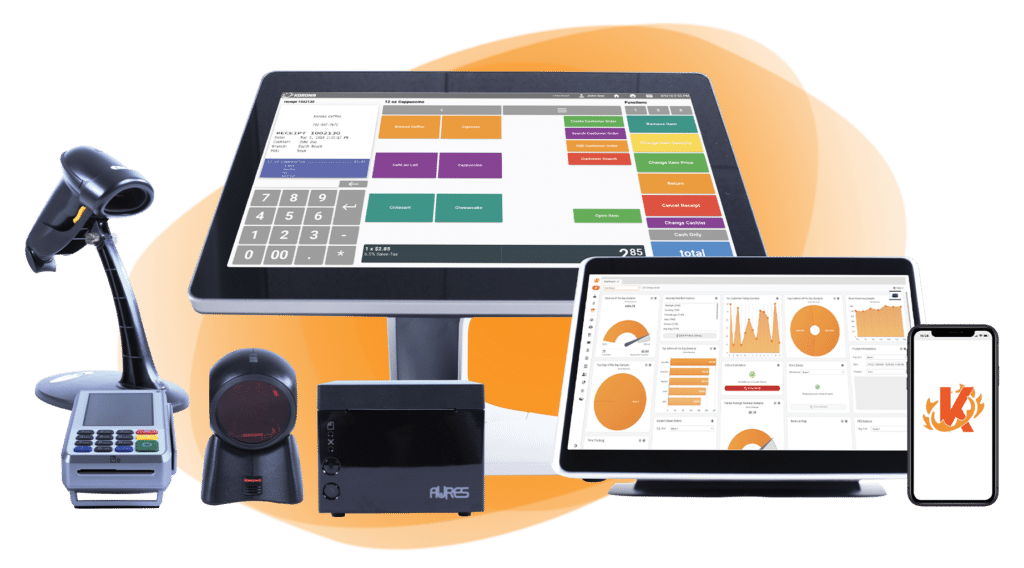
Build Your Own POS Setup
Whether you run a café, retail store, or event booth, we have the point of sale hardware designed for your specific needs. Start building your ideal POS system now.
Deployment Method
The choice between cloud-based and on-premise solutions significantly impacts cost. Cloud-based systems typically operate on a subscription model, with prices ranging from $50 to $500 per month, depending on features and scalability. On-premise solutions often involve higher upfront costs, including hardware and licensing fees, ranging from $10,000 to over $100,000.
Inventory Management Software Cost Hidden Costs
While selecting inventory management software, businesses should be aware of potential hidden costs that may arise beyond the initial purchase price.
Onboarding and Training Costs
Implementing new software often necessitates comprehensive staff training to ensure effective utilization. Skipping proper onboarding can lead to inefficiencies, increased labor costs, and potential revenue loss due to mismanagement. Investing in thorough training programs is essential to maximizing the software’s benefits.
Integration Expenses
Integrating the new software with existing systems, such as accounting or eCommerce platforms, can incur additional costs. These expenses may include custom development work, extended implementation timelines, and potential disruptions during the integration process. It’s crucial to account for these factors when budgeting for new software.
Maintenance and Support Fees
Ongoing maintenance and support are vital for the smooth operation of inventory management software. Some providers charge separate fees for customer support. Additionally, regular updates and troubleshooting services may come at an extra cost, contributing to the total cost of ownership.
Do you have trouble getting your POS customer service on the phone?
KORONA POS offers 24/7 phone, chat, and email support. Call us now at 833.200.0213 to see for yourself.
Data Migration Costs
Transferring existing inventory data into the new system can be a complex and time-consuming process. Data migration may require specialized services to ensure accuracy and integrity, leading to additional expenses. Proper planning and resource allocation are necessary to manage this aspect effectively.
How to Choose the Right Inventory Software?
The appropriate inventory management software is crucial for smooth business operations. A well-chosen system can improve stock control, reduce waste, and improve decision-making.
1. Assess Your Business Needs
Begin by evaluating your specific requirements. Consider factors such as the size of your inventory, the complexity of your supply chain, and any industry-specific needs. This assessment will help you identify essential features and functionalities.
2. Define Key Performance Indicators (KPIs)
Establish clear KPIs to measure the effectiveness of the software. Metrics like inventory turnover, order accuracy, and stockouts can guide your decision. Utilizing a retail KPI dashboard can assist in monitoring these metrics effectively.
3. Evaluate Software Features
Examine the features offered by different software options. Look for capabilities such as real-time tracking, reporting and analytics, and integration with existing systems. For instance, POS reporting and analytics can provide valuable insights into sales and inventory data.
4. Consider Scalability
Choose software that can grow with your business. Scalability ensures that as your operations expand, the software can accommodate increased inventory volumes and complexity without requiring a complete system overhaul.
5. Review Integration Capabilities
Ensure the software integrates seamlessly with your current systems, such as accounting software, eCommerce platforms, and point of sale systems. A comprehensive POS system software with built-in inventory management enhances overall operational efficiency.
6. Analyze Costs
Compare pricing models among different software providers. Consider the initial investment and ongoing maintenance, updates, and support costs. Ensure the total cost aligns with your budget and expected return on investment.
7. Seek User Feedback
Look for reviews and testimonials from other businesses in your industry. Their experiences can provide valuable insights into the software’s performance, reliability, and customer support.
8. Test the Software
Use free trials or demos to assess the software’s usability and functionality. The hands-on experience will help determine if the software meets your operational needs and user preferences.
Schedule a KORONA POS Demo Today
Speak with a product specialist and learn how KORONA POS can power your business needs.
9. Plan for Training and Support
Ensure that the software provider offers comprehensive training resources and responsive customer support. Effective training facilitates a smoother transition and better utilization of the software.
When evaluating the investment in inventory software, it’s helpful to categorize its cost within your overall business expenses, distinguishing between controllable and uncontrollable costs.
6 Recommended Inventory Management Solutions with Pricing
KORONA POS
KORONA POS overview
KORONA POS stands out with unmatched 24/7 customer support, affordable pricing, and an intuitive interface tailored to retail and hospitality. KORONA POS ensures real-time troubleshooting and expert guidance to minimize downtime.

Pros
- Advanced customer support
- Reporting and analytics
- Choose your credit card processor
Cons
- Learning curve
- Not ideal for certain types of retail businesses
KORONA POS Pricing
Core
$59/mo
- Various reporting
- Unlimited users
- Customizable dashboard
Adds-on
From $10 to $50/mo
- KORONA integration
- KORONA Plus
- KORONA Invoicing
Zoho Inventory
ZOHO Inventory overview
Zoho Inventory is known for its multi-channel selling capabilities, seamlessly integrating with major eCommerce platforms such as Amazon, Shopify, eBay, and Etsy.
It provides advanced tools for managing inventory across multiple warehouses, serial and batch tracking for high-value or expirable goods, and powerful automation workflows to streamline operations.
These features make it an excellent choice for businesses looking for efficient inventory management across multiple sales channels.

Pros
- Integration with the Zoho ecosystem
- Affordable pricing with a free tier
- Advanced serial and batch tracking
Cons
- Steep learning curve for new users
- Inconsistent customer support
- Restrictions on the free plan
ZOHO Pricing
Free Plan
$0/mo
- Up to 50 orders
- 1 warehouse limit
- Item groups
Standard Plan
$29/mo
- Up to 500 orders
- 1 warehouse
- 10 custom reports
Professional Plan
$79/mo
- Up to 3000 orders
- 2 warehouses
- Serial number and batch tracking
Premium Plan
$129/mo
- Up to 7500 orders
- 3 warehouses
- Barcode generation
Enterprise Plan
$129/mo
- Up to 15000 orders
- Advanced analytics
- Multi-currency for each customer
inFlow Inventory overview
inFlow Inventory is a cloud-based inventory management solution tailored for small to mid-sized businesses.
It streamlines various aspects of inventory control, including stock tracking, order management, and barcode integration, to enhance operational efficiency.
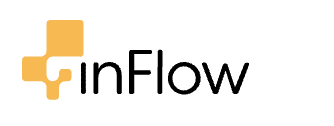
Pros
- User-Friendly Interface
- Cost-Effective
- Responsive Customer Support
Cons
- Limited integrations
- Scalability constraints
- Occasional technical issues
Pricing
Entrepreneur
$186/mo
- 100 orders/mo
- 1 integration
- Inventory locations
- no sublocations
Small Business
$436/mo
- 1,000 orders/mo
- 2 integrations
- Unlimited
Mid-Size
$999/mo
- 5,000 orders/mo
- 3 integrations
- Unlimited Inventory locations
Odoro
OrDORO POS overview
Ordoro is a top contender for online merchants seeking efficient and streamlined order fulfillment.
It provides a comprehensive suite of features, encompassing order and inventory management, shipping integrations, and dropshipping capabilities.

Pros
- Large shipping carrier options
- Easy return label generation
- Seamless integration
Cons
- Limited packing slip customization
- Infrequent eCommerce platform sync
- Not ideal for complex menus
Ordoro Pricing
Essentials
Free
- Unlimited shipping labels
- Lowest shipping rates from top carriers
- Up to 1 user
Advanced
$59/mo
- Phone support
- Automation rules and presets
- Advanced analytics
- Add-on module access
- Merchant carrier module
Premium
$149/mo
- All advanced features
- Quickbooks online integration
- API access
Cin7
CIN 7 Core overview
Cin7 Core is for retailers needing deep supply chain visibility. It offers order management and seamless integration with sales channels, warehouses, and suppliers.
It integrates inventory tracking, order management, and supply chain operations with eCommerce platforms.
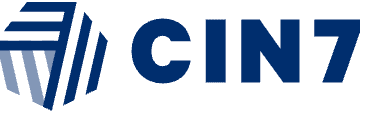
Pros
- Superior supply chain visibility
- Excellent integration capabilities
- Scalable solution
Cons
- Price point considerations
- Complex initial setup
- Learning curve
Cin7 Pricing
Standard
$349/mo
- Standard warehouse management
- Mobile applications
- 2 eCommerce and app integrations
Pro
$559/mo
- Production job management
- 4 eCommerce and app integrations
- 6 users
Advanced
$999/mo
- B2B features
- Advanced warehouse management
- Workflow and approval automation
Omni
Custom pricing
- Advanced plan with additional functionalities for wholesale and B2B businesses
NetSuite Inventory Management
NETSUITE overview
NetSuite Inventory Management is a cloud-based solution designed to help businesses efficiently track, control, and optimize their inventory across multiple locations and channels.
It offers real-time visibility into stock levels, automates replenishment processes, and integrates seamlessly with other business functions such as sales, purchasing, and financials.

Pros
- Enhanced Order Fulfillment Efficiency
- Improved Inventory Control and Accuracy
Cons
- High Cost
- Complexity and Learning Curve
NetSuite Pricing
Contact their sales team for more details.
Factoring in Costs For Other Software
Beyond inventory management, retailers must budget for additional software to streamline operations. From POS systems to accounting, CRM, and retail management software, each tool plays a role in improving efficiency but adds to overall costs. Choosing integrated solutions helps reduce expenses and avoid compatibility issues.
POS System
A retail POS system is essential for processing transactions, tracking sales, and syncing inventory. Costs vary based on features like integrated payment processing, employee management, and customer loyalty programs. A liquor store may require ID verification and compliance reporting, while a clothing boutique benefits from layaway options and customer profiles.
Cloud-based systems with real-time inventory syncing and omnichannel support cost more but provide seamless management. Read more about POS systems here.
Accounting Software
Proper financial management is crucial for profitability. Many businesses integrate inventory management with accounting software like QuickBooks or Xero to track expenses, sales tax, and profitability.
Customer Relationship Management (CRM) Software
CRM software is a valuable investment for retailers looking to enhance customer retention. A boutique clothing store may use CRM to send personalized promotions, while a wholesaler tracks high-value clients and automates follow-ups. More advanced systems with AI-driven customer insights, email marketing automation, and omnichannel support cost more but drive long-term customer loyalty.
eCommerce Platform
An eCommerce platform like Shopify, WooCommerce, or BigCommerce is essential for online and in-store retailers. It enables inventory syncing, order fulfillment automation, and customer data centralization. Costs vary based on features like SEO tools, payment gateways, and API access.
Workforce & Employee Management Software
Staff scheduling, payroll, and performance tracking require workforce management software like Homebase, Deputy, or BambooHR. Advanced solutions with biometric time clocks, AI-driven scheduling, and compliance tracking increase costs.
Marketing Automation & Loyalty Programs
Retailers focused on customer retention can integrate marketing automation software like Klaviyo, Mailchimp, or Marsello. Loyalty programs with points-based rewards and purchase history tracking add extra costs but improve customer engagement.
Supply Chain & Vendor Management Software
Wholesalers and businesses with complex supply chains need vendor management software like TradeGecko or NetSuite. A hardware store managing thousands of SKUs benefits from automated supplier reordering, while a wholesaler requires demand forecasting tools. These platforms improve inventory planning but often have premium pricing due to advanced analytics.
Inventory Management Pricing FAQs
What is the difference between an inventory management system and ERP software?
An Inventory Management System (IMS) focuses on tracking and managing a company’s stock levels, orders, sales, and deliveries. In contrast, Enterprise Resource Planning (ERP) software offers a comprehensive, integrated application suite that manages various business processes, including finance, human resources, supply chain, and inventory management. While an IMS is dedicated solely to inventory tasks, an ERP encompasses a broader range of organizational functions.
Are there any free inventory management software options?
Yes, free inventory management software options are available, though they often come with features, scalability, or user support limitations. These free versions can suit small businesses or startups with straightforward inventory needs. However, as a company grows, investing in a more robust, paid solution might become necessary to handle increased complexity and to access advanced features.
Is inventory management software worth it?
Investing in inventory management software can significantly enhance operational efficiency by providing real-time visibility into stock levels, reducing manual errors, and optimizing order fulfillment processes. This leads to cost savings, improved customer satisfaction, and better decision-making capabilities. For many businesses, especially those dealing with substantial inventory, the benefits of such software often outweigh the costs.
Try KORONA POS for Your Point of Sale & Inventory Management
KORONA POS gives retailers a more innovative way to manage inventory. The system tracks stock in real-time and sends low-stock alerts to prevent shortages. It also helps prevent overstocking so businesses avoid wasting cash on excess inventory.
Multi-location management makes it easy to oversee stock across different stores or warehouses. Plus, built-in sales reports highlight top-performing products, helping retailers make better purchasing decisions.
Beyond inventory control, KORONA POS simplifies operations. It offers vendor management, custom reporting, and seamless eCommerce integrations. Whether you run a liquor store, vape shop, or convenience store, the software adapts to your needs. There are no long-term contracts or hidden fees. Book a demo today and see KORONA POS in action!

